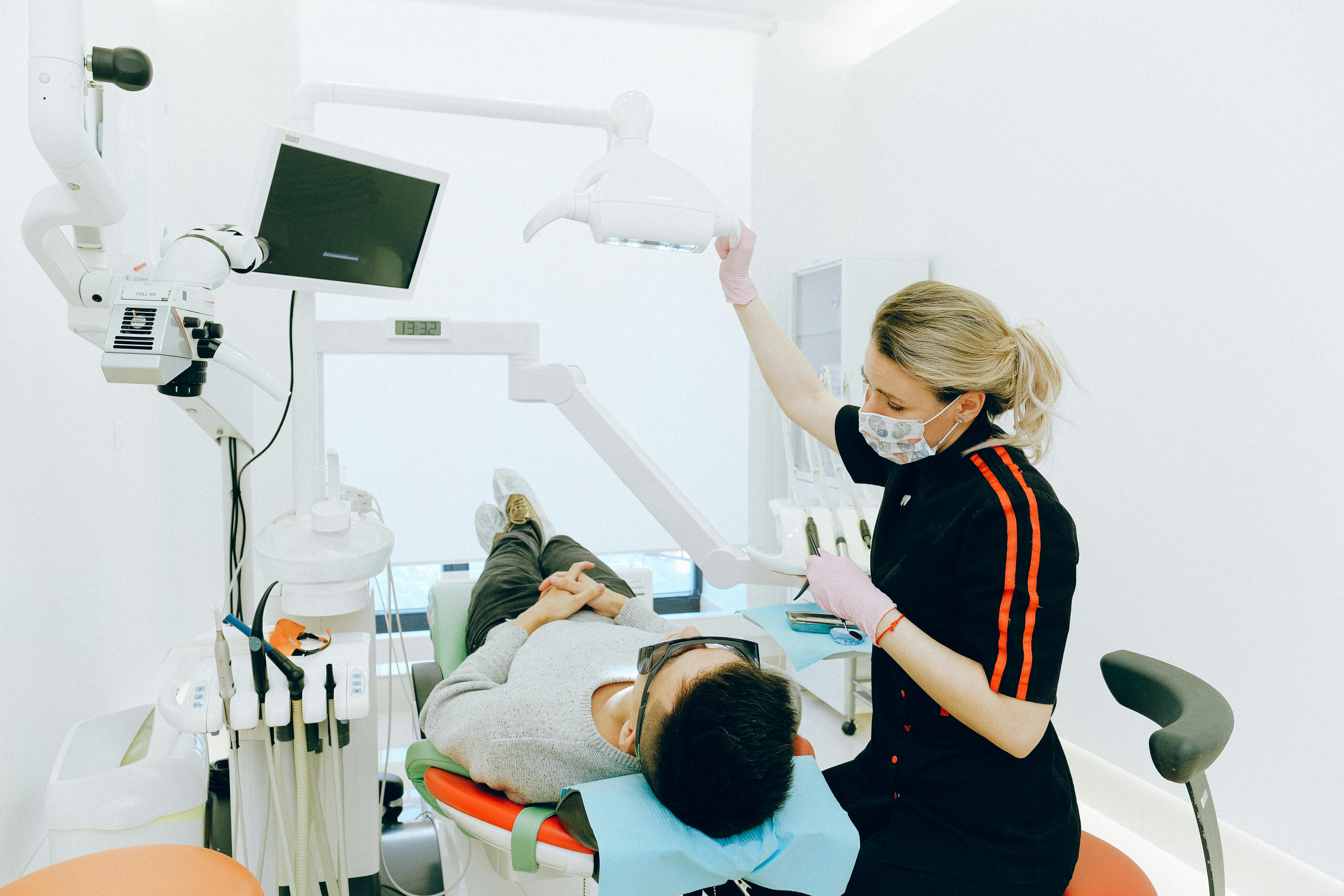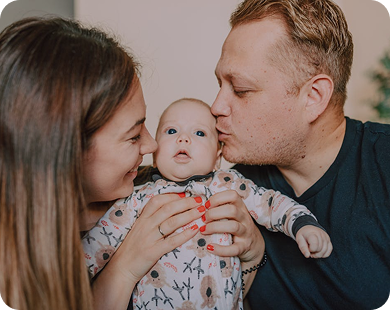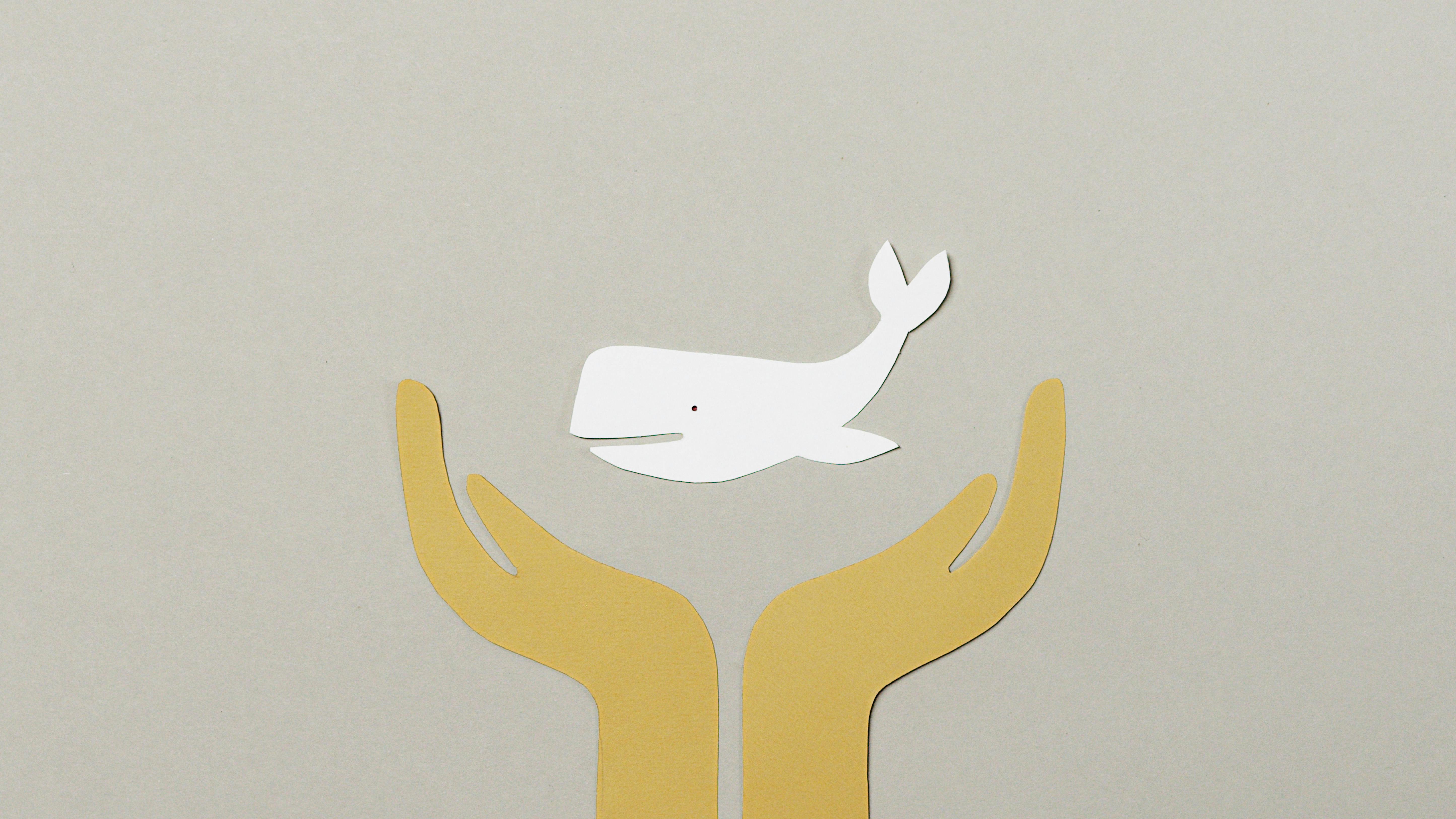If you're wondering whether IUI was worth trying or just a stepping stone to IVF, you're not alone. Many patients ask this exact question after experiencing IUI cycles. The truth is, IUI serves an important purpose in fertility treatment - it's often the right first step that can lead to pregnancy while being less invasive and more affordable than IVF. However, knowing when to transition from IUI to IVF is crucial for your fertility journey.
Understanding IUI: More Than Just a Stepping Stone
Intrauterine insemination (IUI) is a fertility treatment where specially prepared sperm is placed directly into your uterus during ovulation. This procedure bypasses potential barriers in the cervix and gives sperm a head start in reaching your egg.
Many patients view IUI as simply a preliminary step before IVF, but this perspective doesn't capture the full picture. IUI can be highly effective for specific fertility challenges and offers several advantages that make it worthwhile as a standalone treatment.
When IUI Makes Perfect Sense
IUI isn't just a consolation prize before moving to IVF. For many couples, it's exactly the right treatment. The procedure works particularly well when you have specific fertility factors that IUI can address effectively.
| Fertility Factor | Why IUI Helps | Success Potential |
|---|---|---|
| Unexplained infertility | Overcomes unknown barriers to conception | Higher success with ovulation stimulation |
| Mild male factor | Concentrates and places sperm closer to egg | Effective for low motility or count |
| Cervical factor | Bypasses cervical mucus issues | Excellent when cervix is the barrier |
| Ovulation disorders | Combined with fertility medications | Very effective with proper timing |
| Same-sex couples | Enables conception with donor sperm | Success rates similar to fertile couples |
According to the American Society for Reproductive Medicine, IUI success rates range from 10-20% per cycle, depending on your age and specific fertility factors. These numbers might seem modest, but they represent real pregnancies achieved through a less invasive approach.
The Real Value of Trying IUI First
The question isn't whether IUI is worth it compared to IVF - it's whether IUI is the right treatment for your specific situation. Many patients who eventually need IVF still benefit from trying IUI first, and here's why.
IUI provides valuable diagnostic information about your fertility. During IUI cycles, your medical team monitors your response to fertility medications, tracks your ovulation patterns, and observes how your body responds to treatment. This information becomes incredibly valuable if you later need IVF treatment.
The emotional and financial aspects matter too. IUI allows you to ease into fertility treatment gradually. The procedure is less physically demanding than IVF, requires fewer medications, and costs significantly less. This gentler approach helps many patients build confidence in their fertility journey.
Success Rates: Setting Realistic Expectations
Understanding IUI success rates helps you make informed decisions about your treatment timeline. Success depends heavily on your age, diagnosis, and specific fertility factors.
| Age Group | IUI Success Rate per Cycle | Cumulative Success (3-4 cycles) |
|---|---|---|
| Under 35 | 15-20% | 40-50% |
| 35-37 | 10-15% | 30-40% |
| 38-40 | 8-12% | 20-30% |
| Over 40 | 5-8% | 10-20% |
These numbers show why many fertility specialists recommend trying multiple IUI cycles before moving to IVF, especially for younger patients with good prognosis factors.
Recognizing When It's Time to Move Beyond IUI
While IUI can be highly effective, knowing when to transition to IVF is crucial for optimizing your chances of pregnancy. Several factors indicate when IUI has served its purpose and it's time to consider more advanced treatment.
The number of failed IUI cycles is one clear indicator. Most fertility specialists recommend moving to IVF after 3-4 unsuccessful IUI attempts, though this timeline can vary based on your specific circumstances. Age plays a significant role in this decision - women over 38 might transition to IVF sooner to maximize their chances within their optimal fertility window.
Clear Indicators for Moving to IVF
| Situation | Recommended Action | Reasoning |
|---|---|---|
| 3-4 failed IUI cycles | Consider IVF evaluation | Statistical likelihood of IUI success decreases |
| Severe male factor | Move to IVF with ICSI | IUI cannot overcome severe sperm issues |
| Blocked fallopian tubes | IVF is necessary | IUI requires open tubes to work |
| Advanced maternal age (40+) | Consider IVF sooner | Time is critical for egg quality |
| Poor ovarian reserve | Maximize each cycle with IVF | Fewer opportunities require higher success rates |
Dr. Sarah Johnson, a reproductive endocrinologist at Johns Hopkins, notes: "The decision to move from IUI to IVF should be individualized. While IUI is an excellent first-line treatment for many patients, recognizing when to advance to IVF can significantly impact overall success rates and reduce time to pregnancy" (Johnson, 2023).
The Financial Reality: IUI vs IVF Investment
Cost considerations play a significant role in fertility treatment decisions. Understanding the financial investment helps you plan your treatment journey effectively.
IUI typically costs between $500-$1,500 per cycle, not including medications. When you add fertility drugs, monitoring, and additional procedures, each IUI cycle might cost $1,000-$3,000. In contrast, a single IVF cycle can cost $12,000-$15,000 or more.
However, the cost-per-pregnancy calculation tells a different story. If IUI works within 3-4 cycles, it's significantly more affordable than IVF. But if you need 6+ IUI cycles before moving to IVF, the cumulative cost approaches that of starting with IVF.
| Treatment Path | Total Investment | Time Investment | Success Likelihood |
|---|---|---|---|
| 3 IUI cycles then IVF | $18,000-$24,000 | 6-8 months | Moderate to high |
| 6 IUI cycles then IVF | $24,000-$33,000 | 12-15 months | High but delayed |
| Direct to IVF | $12,000-$15,000 | 2-3 months | Higher per cycle |
Many patients find that trying IUI first makes financial sense, especially when insurance covers some fertility treatments. The key is having a clear plan with your fertility team about when to transition to more advanced treatments.
Emotional Considerations: The Psychological Journey
The emotional aspect of fertility treatment is just as important as the medical considerations. Many patients find that starting with IUI helps them adjust to fertility treatment gradually, both emotionally and physically.
IUI allows you to maintain a sense of natural conception while receiving medical assistance. The procedure is less invasive, requires fewer medications, and doesn't involve egg retrieval or embryo transfer. This gentler approach helps many patients feel more comfortable with fertility treatment.
However, repeated IUI failures can be emotionally challenging. Each unsuccessful cycle brings disappointment, and the uncertainty about when to move to IVF can create additional stress. Having clear expectations and a treatment plan helps manage these emotional challenges.
Building Emotional Resilience During Treatment
Successful fertility treatment requires both medical intervention and emotional support. Many patients benefit from counseling, support groups, or connecting with others who have experienced similar journeys.
At Avida Fertility, we understand that emotional support is crucial throughout your fertility journey. Our team provides comprehensive care that addresses both the medical and emotional aspects of treatment.
Optimizing Your IUI Success
If you're pursuing IUI treatment, several factors can improve your chances of success. Working closely with your fertility team to optimize these elements can make a significant difference in your outcomes.
Timing is absolutely critical for IUI success. The procedure must be performed within 12-36 hours of ovulation for optimal results. This requires careful monitoring through ultrasounds and hormone testing to predict ovulation accurately.
Many patients benefit from ovarian stimulation during IUI cycles. Fertility medications like Clomid or letrozole can increase the number of eggs released, improving your chances of conception. However, this approach requires careful monitoring to prevent multiple pregnancies.
| Optimization Factor | Impact on Success | Implementation |
|---|---|---|
| Precise timing | Critical for success | Ultrasound and hormone monitoring |
| Ovarian stimulation | Can double success rates | Fertility medications with monitoring |
| Sperm preparation | Improves sperm quality | Laboratory processing and concentration |
| Lifestyle factors | Supports overall fertility | Diet, exercise, stress management |
| Progesterone support | Supports implantation | Post-IUI hormone supplementation |
Research shows that combining IUI with ovarian stimulation can increase success rates by 50-100% compared to natural cycle IUI (Smith et al., 2022). This improvement makes the investment in monitoring and medications worthwhile for many patients.
Making the Right Decision for Your Situation
The decision between continuing IUI or moving to IVF should be based on your specific circumstances, not general statistics or other people's experiences. Several factors should guide this important choice.
Your age is perhaps the most critical factor. Women under 35 with unexplained infertility often benefit from trying 3-4 IUI cycles before considering IVF. However, women over 38 might want to limit IUI attempts to 2-3 cycles to preserve their optimal fertility window.
Your diagnosis also influences this decision. Couples with unexplained infertility or mild male factor often see good results with IUI. However, severe male factor infertility, blocked tubes, or significant ovarian reserve issues might warrant moving directly to IVF.
Questions to Discuss with Your Fertility Team
Having open conversations with your fertility specialist helps ensure you're making informed decisions about your treatment path. Consider discussing these important questions:
| Question Category | Specific Questions | Why It Matters |
|---|---|---|
| Success probability | What are my specific IUI success rates? | Personalizes general statistics to your situation |
| Timeline considerations | How many IUI cycles should we try? | Balances hope with realistic expectations |
| Diagnostic value | What will IUI teach us about my fertility? | Maximizes learning from each cycle |
| Financial planning | What's the cost-effective treatment path? | Helps plan your fertility investment |
| Transition planning | When should we consider moving to IVF? | Creates clear decision points |
The Avida Fertility Approach
At Avida Fertility, we believe in personalized treatment plans that honor your unique fertility journey. We don't view IUI as simply a stepping stone to IVF - we see it as a valuable treatment option that can lead to successful pregnancies when applied appropriately.
Our approach involves comprehensive evaluation to determine whether IUI is likely to be successful for your specific situation. We consider your age, diagnosis, previous treatment history, and personal preferences when developing your treatment plan.
We also believe in transparent communication about success rates, treatment timelines, and when to consider advancing to more complex treatments. Our goal is to help you achieve pregnancy in the most efficient and comfortable way possible.
Frequently Asked Questions
How many IUI cycles should I try before moving to IVF?
Most fertility specialists recommend 3-4 IUI cycles for women under 35, and 2-3 cycles for women over 38. However, this depends on your specific diagnosis and response to treatment. Your fertility team will help determine the right timeline for your situation.
Is IUI worth trying if I have unexplained infertility?
Yes, IUI can be very effective for unexplained infertility, especially when combined with ovarian stimulation. Many couples with unexplained infertility achieve pregnancy through IUI before needing to consider IVF.
Can IUI work if previous cycles failed?
Each IUI cycle is independent, and success in one cycle doesn't predict success in the next. However, your fertility team may adjust medications, timing, or protocols based on previous cycles to improve your chances.
What's the success rate difference between IUI and IVF?
IVF generally has higher success rates per cycle (40-50% for women under 35) compared to IUI (15-20%). However, IUI is less invasive and more affordable, making it a reasonable first step for many couples.
Should I skip IUI and go directly to IVF?
This depends on your specific situation. Couples with severe male factor, blocked tubes, or advanced maternal age might benefit from going directly to IVF. However, many couples with good prognosis factors benefit from trying IUI first.
Looking Forward: Your Fertility Journey
Whether IUI was worth it for you depends on your individual circumstances, but for many patients, it serves as an important and valuable step in their fertility journey. The key is working with a fertility team that understands your unique situation and can guide you through the decision-making process.
Remember that fertility treatment is not a race - it's about finding the right path to help you build your family. Some patients achieve pregnancy quickly with IUI, while others need to progress to IVF. Both paths can lead to successful outcomes when managed appropriately.
The most important thing is having a clear treatment plan, realistic expectations, and a supportive medical team. At Avida Fertility, we're committed to providing you with the personalized care and advanced treatments you need to achieve your dream of parenthood.
Your fertility journey is unique, and the treatment that works best for you might be different from what worked for others. Trust in the process, stay informed about your options, and remember that each step - whether it's IUI, IVF, or other treatments - brings you closer to your goal of building a family.
Considering IVF treatment? Avida Fertility is here to support and guide you on your fertility journey. Reach out today for a personalized consultation and take the first step towards building your family with confidence.






.png)







.svg)
.svg)
